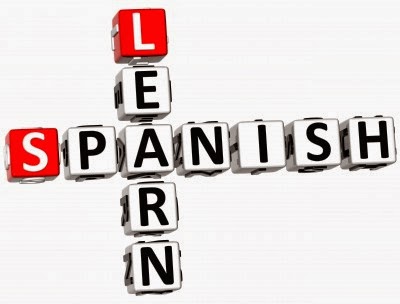Why do we study languages?
“Because we like them”. This could be one of the most common
answers we could turn up with. But, what if we would like to go farther? What
if we would like to use this knowledge in a professional way? The first option
that comes to our minds is “philology”, the study of the language itself and
its literature. However, there exist other options, and the one we are going to
talk about is “translation and interpreting”. We are going to state briefly
what it consists of and why it may seem unknown for some people.
On the 30th of September we celebrate The International Day of
Translation and Interpreting. This date represents the death of Saint Jerome,
translators and interpreters’ patron saint. He was the first person who translated
the Bible into a Romance language in the 3th century. The International
Federation of Translators and Interpreters was the organism that boosted this
event in 1991. One of the objectives of this celebration is giving the
translators their deserved recognition. In spite of being one of the most
ancient jobs in the world –and it still is present today–, few people know the
point of it.
That is
why we are going to point out some important characteristics of this job. This
is our tiny tribute in its day.
We do not exaggerate
when saying that it is one of the most ancient jobs in the world. The Bible
reflects the origin of languages in one of its passages in the Genesis. It
tells how some people try to build a tower so that they can reach heaven.
However, God punishes them because of the level of pride and arrogance they
experience. The punishment consists of the division of languages, resulting in
the implicit difficulty of communication –a problem that still persists these
days–. This is known the Babel Tower.
The Bible
is the most translated book through history; we can find it in more than three
hundred languages. From that, we can infer the importance of Saint Jerome as
the translators’ patron saint.
Why is translation important in our
society nowadays?
Well, we can say it in one
word: GLOBALIZATION. If we stop to think about how many times we face a
translated text during the day, we could say that translation does imply a
noticeable engine of global communication. Some examples are instructions for
use of electronics made abroad, books written by foreign authors, some news
about equity markets, Hollywood movies... But there are much more behind it.
However, do we really know what the
key elements of translation are?
Have you ever tried to translate a text into your mother tongue? If not,
try it and tell us about it. But, for the time being, we are going to deep into
this job and prove some frequent myths wrong.
It is not necessary for a translator to be a bilingual person. It is
just the tip of the iceberg. Translators are intercultural mediators, that is,
they must know about culture of the languages –taking into account their
corresponding countries—they are working with. There is formal education in
translating and interpreting, then it is something that can be learnt.
Translators are not dictionaries, neither are they machines. They posses
language and cultural knowledge, apart from translation techniques. They also
have skills on information research, because they face new texts every day,
dealing with different themes. This implies a continuous learning –even self-learning.
Therefore, we can state that wide cultural knowledge is a good starting point.
There is something left here, the
other half of translation… interpreting. But we will tell you about it at another
post.




